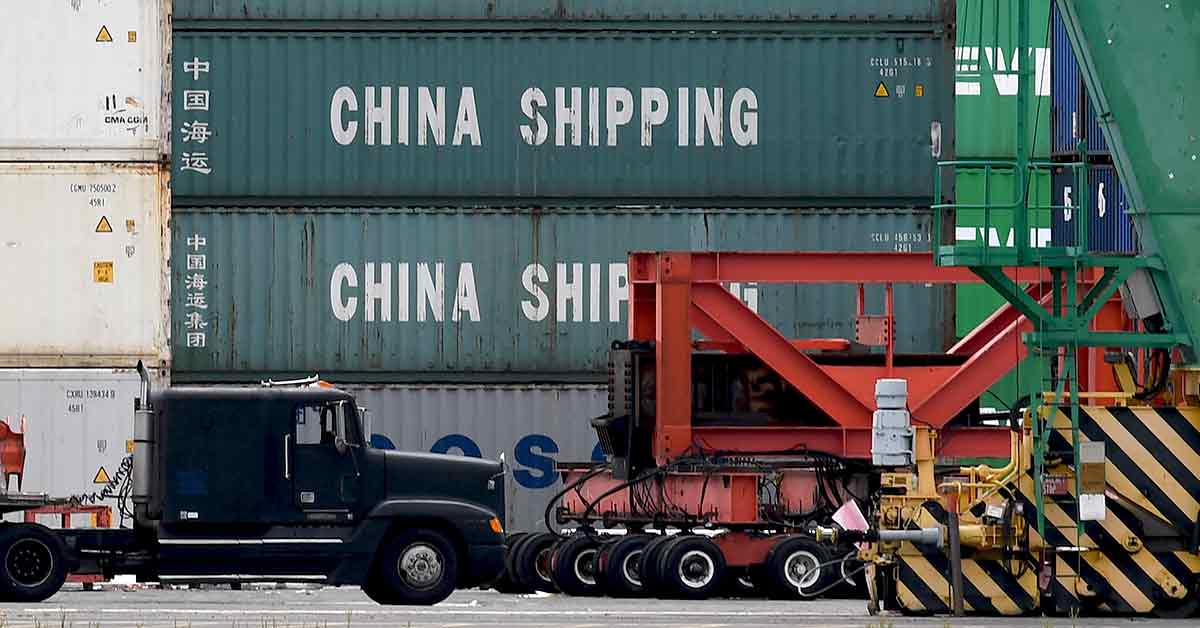As they prepared to return to the negotiating table on Thursday, top Chinese trade officials faced a blitz of aggressive US manoeuvres, with expectations for a grand bargain between both sides approaching zero.
President Donald Trump – who has taken the global economy on a white-knuckle ride since launching multi-pronged trade offensives with China and Europe last year – said Wednesday the outcome was down to him.
"They want to make a deal," he said at the White House. "The question is do I want to make a deal."
US duties on $250 billion in Chinese imports are due to rise in five days while relations meanwhile deteriorated through the week.
Washington has slapped visa restrictions on senior Chinese officials and blacklisted more than two dozen Chinese firms, accusing both of persecuting ethnic Muslims in China's western Xinjiang region.
The measures have outraged Beijing and, in the process, penalized major Chinese players in the artificial intelligence sector, in which both nations are intense rivals.
Chinese trade envoy Liu He is due to meet Thursday with US Trade Representative Robert Lighthizer and Treasury Secretary Steven Mnuchin.
But Trump's attitude toward the process is subject to sudden change, given the churning pressures competing for his attention.
He is as usual engulfed in turmoil, facing Democrats' intensifying efforts to impeach him and Republicans' stinging criticism for effectively allowing a Turkish assault on US-allied Kurdish forces by pulling American forces from northern Syria.
Markets were nevertheless buoyed on Wednesday by media reports that Beijing will propose a partial deal to prevent further escalation.
China is willing to bump up purchases of US farm exports and make other concessions but will stop short of addressing Trump's core grievances, according to Bloomberg and The Financial Times.
In return, Beijing would expect a pause on planned increases in US import tariffs, which are currently scheduled to increase in waves through December.
Earlier in the week, firebrand White House trade adviser Peter Navarro told NPR that Trump was uninterested in half measures, showing "steely resolve" instead.
'More and more friction'
"It's either a big deal or no deal," he said, adding that any attempt to reach an incremental bargain would be a "miscalculation by China."
Washington accuses China of attempting to forge global industrial predominance through massive state intervention in markets, the theft of intellectual property, hacking and subsidies, accusations shared by Europe and Japan.
But Clete Willems, a former Trump trade advisor, said Wednesday a partial deal could be the president's best move.
"I don't think the administration should be afraid of a partial deal," he told CNBC, adding that a bargain that came with some structural reforms to China's economy could be worth it.
"I think it's a way that the president can essentially have his cake and eat it too. He can say, look, I made progress on some real significant things but I'm still tougher than anyone else has ever been."
China's purchases of US soybeans jumped in September after stagnating during the summer. This could offer some relief to American farms, which have borne the brunt retaliation in the trade war.
Warning signs for the global economy have blared ever louder in recent weeks, however, increasing the pressure on both sides to reach a deal.
The International Monetary Fund this week said the trade war was due to shave nearly $700 billion from global growth next year, with 90 percent of the world's nations now experiencing a "synchronized slowdown."
US central bankers believe the trade war is raising the chances the United States could slip into recession, according to a readout released Wednesday from last month's Federal Reserve policy meeting.
American exports have weakened, manufacturing is now contracting and business investment has fallen off sharply due to uncertainty created by the trade war.
And if that slump persists, layoffs could soon follow, eroding consumer spending and dragging growth down with it, according to the Fed's minutes.
"We all know the next round of tariffs is going to hurt the United States as much or more than China," Wendy Cutler, vice president of the Asia Society Policy Institute, said on Wednesday.
"I think neither side will admit it but I think they're both under pressure to find a way to forestall the next set of tariff increases," she added.
"Every month that these trade talks continue, there's more and more friction in the relationship." – AFP
